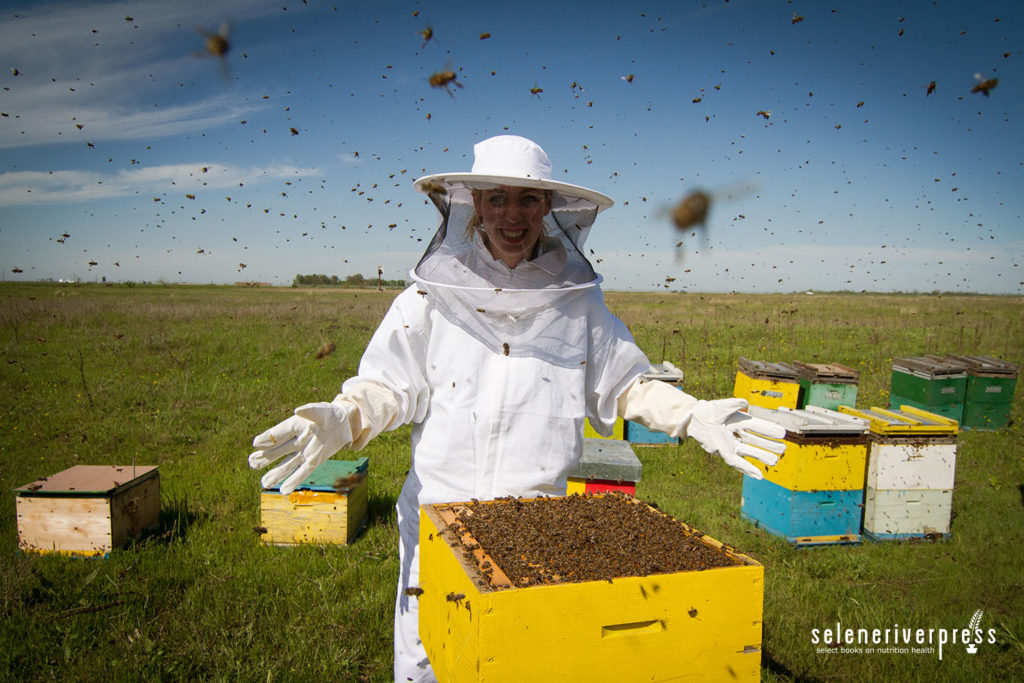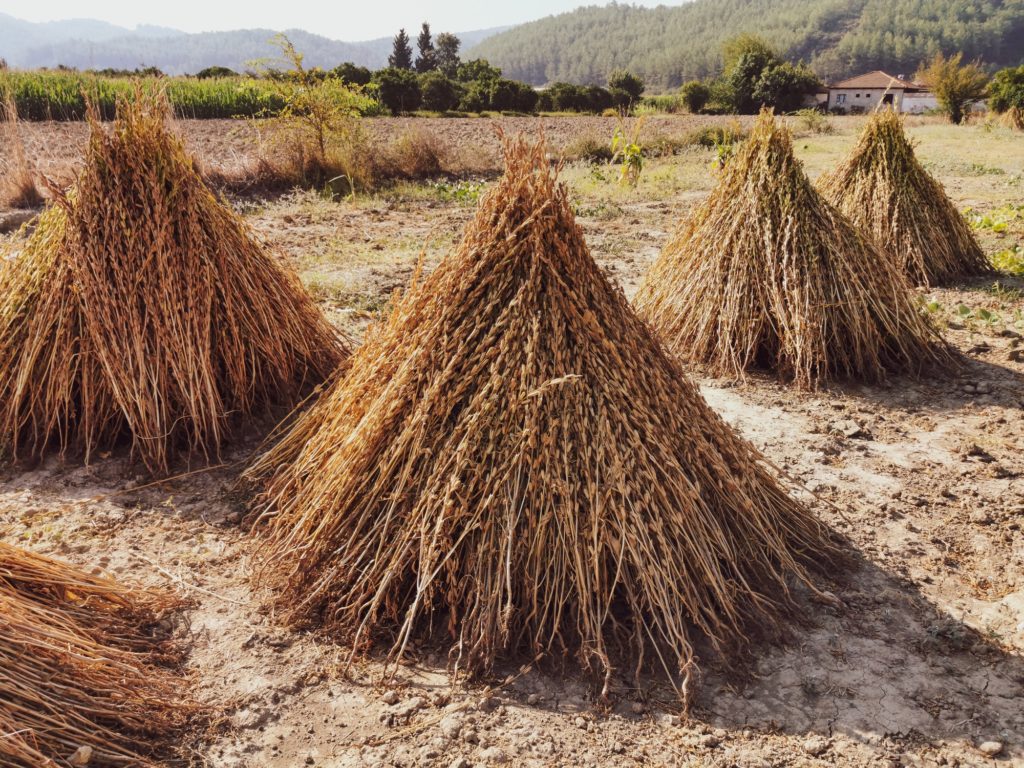On a daily basis, most of us take our food for granted. Maybe you like scrambled eggs with onions, peppers, and spinach for breakfast. And a crunchy chef salad with a tahini dressing is always nice at lunch. And, for dinner, maybe some grilled salmon and roasted veggies. Not too bad, right?!
But do you ever think about where that food comes from? I’m not talking about the route you take to your local farmers’ market or health food store. Like, do you ever wonder if the chickens who lay your morning eggs roam open pasture by day and roost peacefully in their coops each night—or are they crammed into metal sheds with gobs of other chickens that can barely spread their wings?
Earlier this month, we talked about how taking your self-health education seriously gives you power to live a healthful life. Well, the next step on your self-health adventure is to level up even more and learn about the labor and sacrifice that goes into getting food onto your plate. After all, your food didn’t just land there, and learning to respect your food means learning to understand its journey to your table.
Here are a few of the things I’ve learned in my reading that really got me thinking this way.
Sesame Seeds
In article 54 of From Soil to Supplement, “Sesame Seed—Queen of the Oil-Bearing Seeds,” Dr. Royal Lee discusses how valuable the tiny sesame seed is across many cultures. Learning how they’re cultivated will make you respect their journey to your pantry.
A single pound of sesame seeds contains 160,000 seeds in the bag, and they’ve all undergone a labor-intensive harvesting process. As Lee writes, “The plants are cut and bound into small bundles, then placed in small shocks (gathered grain) until they are thoroughly dry. The bundles are then opened and the seed is threshed, readily falling from the capsules.”
Therefore, I think we should respect the laborers who devote their time and energy to the proper harvest of this highly nutritious seed.
Tupelo Honey
In the very next section of From Soil to Supplement—a 1956 article titled “Fruit Sugar from the ‘Beetlebung Tree’”—Dr. Lee explains that the “super honey known as tupelo honey” is grown in just fifty apiaries located in the swamps of Florida. This high-grade honey also refuses to go rancid.
In a short season of just three-weeks (from late April to early May), 500,000 pounds of tupelo honey is produced. And since nothing else is blooming at that time, the honey is pure. With this particular food, it’s the bees who deserve our respect. For one pound of honey, Lee reports, the bees take 37,000 trips. Wow. Just wow!
Meat
It’s meat that deserves our ultimate respect. In the revised fourth edition of her book Why Your Doctor Offers Nutritional Supplements, Stephanie Anderson encourages us to raise some of our own food, including animals. As she puts it, “When you ‘get up close and personal’ with the life that will nurture you and your family, eating is restored to the sacred act it was meant to be.”
She also points out that we may feel uneasy and even remorseful about killing an animal that we’ve raised. Rightfully so. “It should make us feel many things, such as humble in the face of such ultimate sacrifice… But to raise a creature for food is to experience deep respect and humility for the gift of life in all forms.”
Thank you, Stephanie. I couldn’t have said it better myself.
Bringing foods to your refrigerator (and your belly) requires some sort of sacrifice, whether it’s the life of an animal or the labor of a fellow human being. There’s something worthy and important about truly respecting where our food comes from. It’s nourishment on a whole other level. Wouldn’t you agree?
Images from iStock/flyparade (main), Doras (post).




